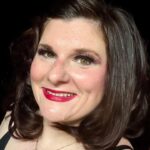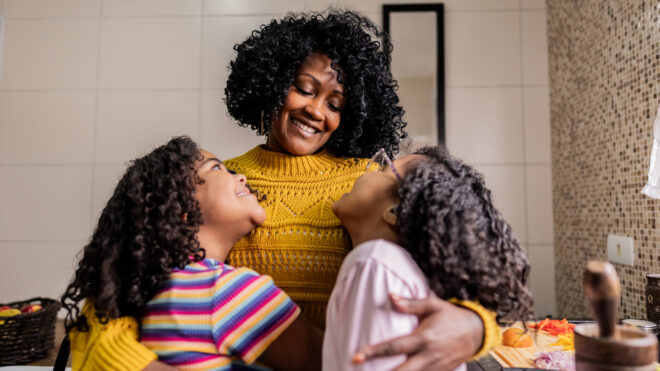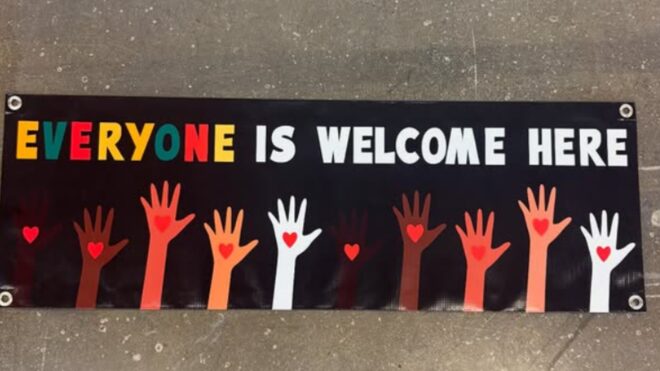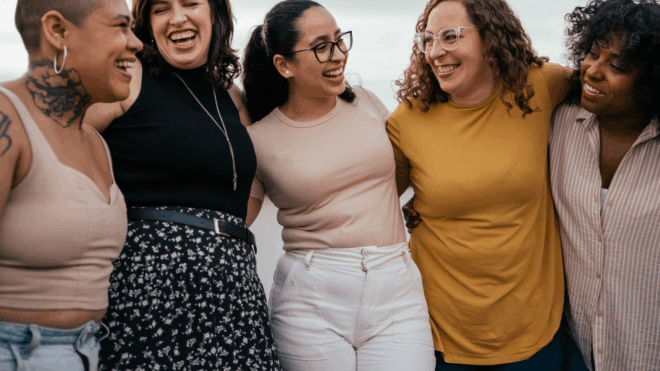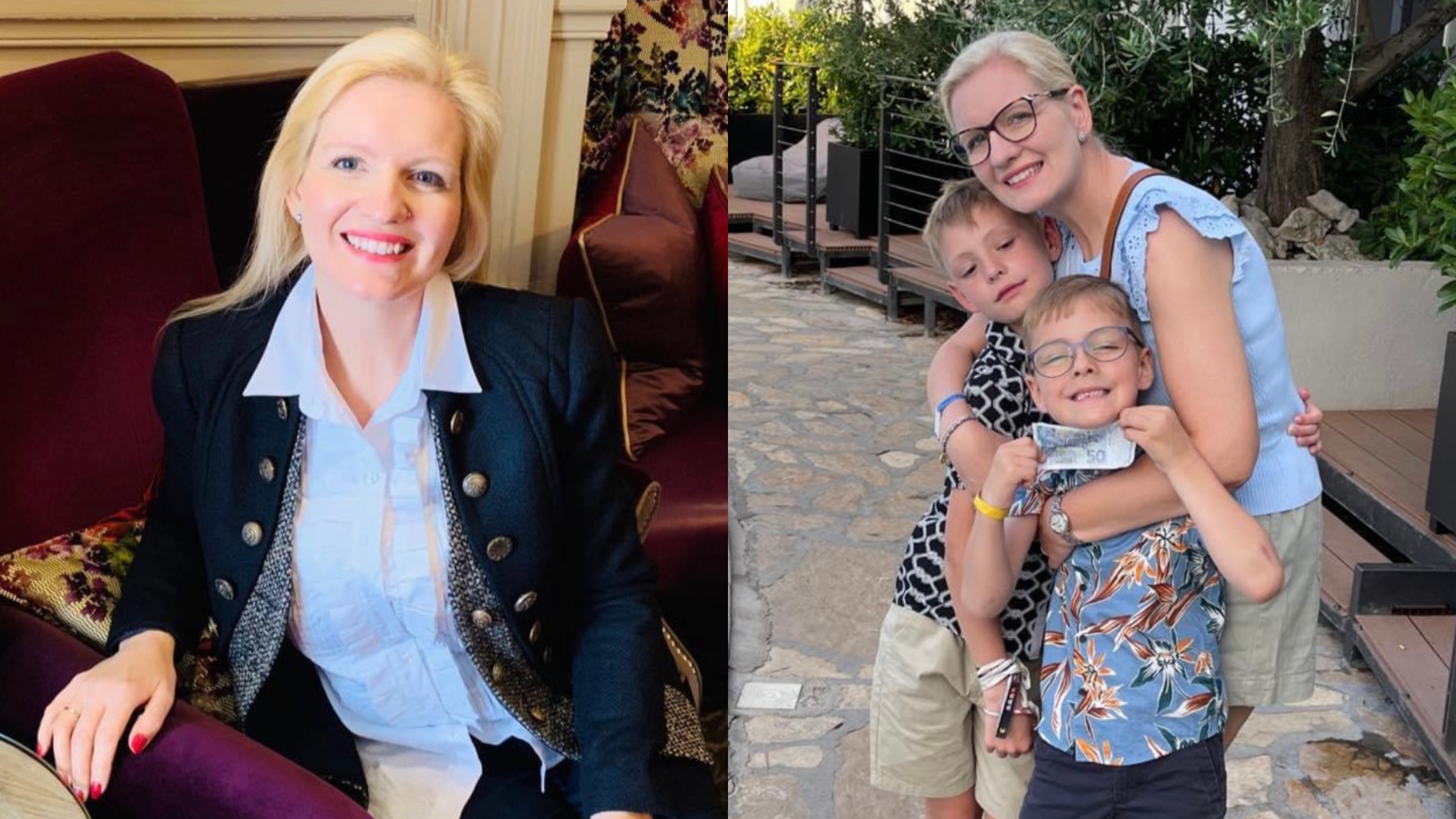
Some say that if you become a parent when you're younger, you'll have more energy than older parents do and that by having kids young, you'll still be able to enjoy your twilight years without being bogged down with parenting duties.
That may be the case for some, but if your child also becomes a young parent, you could end up as a young grandparent with a new set of responsibilities. Many grandparents say that becoming a grandparent keeps you young, so maybe that's not so bad, right?
Jane McNeice, 47, ended up on just such a path. She gave birth to her daughter Laura, when she was a teenager, and then Laura had a baby of her own when she was 15. That made Jane a grandmother at just 33. But there's a twist: Jane wasn't finished having babies yet. She went on to have two sons, both younger than their first niece. It's a wild but fantastic story.
More From CafeMom: 15 Celebs We Can't Believe Are Grandparents
Both young mothers planned their pregnancies.
Per the New York Post, Jane told Caters News Agency that she planned her pregnancy with Laura because she wanted to be a young mom. But when Laura came to her at 15 to tell her that she would also be a teen mom, McNeice says she was "absolutely devastated" and told her daughter to terminate the pregnancy.
"It was quite a shock," McNeice said of Laura's pregnancy. "We had unusual circumstances as Laura was planned, even though I had her young. But what we learned later was that Laura's pregnancy was also planned." Laura gave birth to a daughter, Evie, now 11.
Two years later, Jane restarted her family.
At 37, Jane welcomed her son, Oliver. And just a couple of years later, Jane and Laura were pregnant at the same time. Jane gave birth to her son, Ben, shortly after Laura welcomed her daughter, Bella. Because the infants were born so close together, Jane cared for them in a way most grandmothers can't — she breastfed her grandchild.
"I think that's quite extreme and that won't feel comfortable for everyone," Jane said. "There will be some people who think that is amazing and a complete privilege. And there will be other people who are making sicky noises at that."
The mother and daughter have happily raised their young families together, but they soon noticed something was different.
Oliver wasn't like all the other kids.
Jane said that the now 9-year-old boy began to show behavioral issues at age 6, when the COVID-19 pandemic hit. She did what most moms would and started joining parenting groups on Facebook looking for answers about what was happening with her son. As she learned more, she realized she and her son shared similar qualities.
"I was scrolling through the page on Saturday morning and I just came across the post titled 'girls with autism' with symptoms listed around, and I literally just went, 'Tick, tick, tick.' I knew straight away," Jane told Caters. In her search for answers about her son, she realized she was autistic, too.
Laura also struggled to fit in.
According to Jane, she was diagnosed with autism within minutes of entering the doctor's office. She said that two months later, her daughter Laura had her diagnosis as well, and three months after Laura, Oliver was diagnosed.
The teenage pregnancy that once seemed so jarring now made sense to them. Autism can be genetic, and because of their neurodivergence, Jane and Laura would never be like most other moms.
"I bought into the neurotypical ideals — that your child does well, they go off to university, and they get a great job. They get married, they have two to four children, a nice house, a nice car. Now that we know we're autistic, we're able to say, 'What is normal for us?' It's a different standard to what is normal for a neurotypical family," Jane said.
More From CafeMom: 20 Things Everyone Needs To Know About Autism
Jane wants to spread the word about late autism diagnosis.
The neurodivergent mom wrote a book called The Umbrella Picker about being diagnosed with autism as an adult and what it means to find yourself later in life. She said that if you have questions about who you are, you should keep reading.
"Look at literature out there, read other stories and connect with them. If you've got suspicion you are, I generally find that most people are pretty accurate with their own suspicions," she said. "The decision to seek assessment is an individual choice and, for me, one of the best decisions of my life."
Although her family situation is unique, she is happy that her children and grandchildren are growing up together because making friends with autism can be challenging.
"Autistic people struggle to make friends," Jane admitted. "We are simply different. The biggest challenge is we live in a society that does not accept difference and is highly judgmental of it in many cases."
